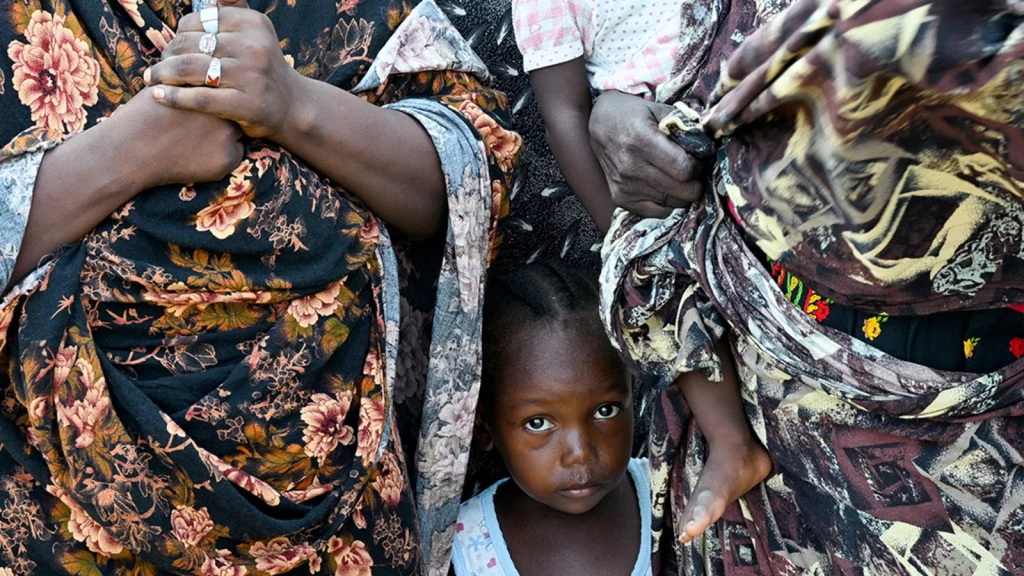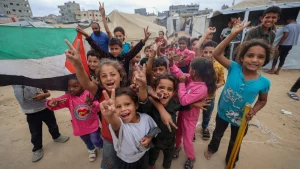
Since April 2023, when the Sudan Armed Forces (SAF) and the Rapid Support Forces (RSF) began their disastrous war, the people of Sudan have been killed, displaced, starved and subjected to appalling acts of brutality. Millions have been driven from their homes, and entire communities live under siege conditions. Reports of widespread sexual and gender-based violence continue to shock the conscience of humanity.
Yet despite the scale of this catastrophe, the international response has been completely inadequate. Multiple mediation efforts have failed to coordinate competing initiatives or persuade the main parties to negotiate an end to the conflict. Humanitarian action has been hampered by chronic underfunding, limited distribution mechanisms and slow adaptation by international humanitarian actors to the context. In particular, it has failed to adjust to the urgency of providing support to locally led frontline mutual aid efforts. Above all, it has been impeded by the refusal of both SAF and RSF to grant meaningful access. Hunger is being used as a weapon of war.
Since June 2024, UAI has convened a Task Team on Sudan, bringing together political analysts, humanitarian professionals, academics, civil society and diaspora representatives. In June 2024, we first called for the appointment of a High-Level Humanitarian Envoy to work alongside the UN Secretary-General’s Personal Envoy. The case for such an appointment is now stronger than ever.
A dedicated Humanitarian Envoy could:
– Focus international attention on civilian needs and sustain momentum when the political track is stalled;
– Re-energise fundraising by mobilising donor capitals and raising public awareness at a time when the 2025 Humanitarian Response Plans for Sudan and for Sudanese refugees remain massively underfunded;
– Support negotiations for humanitarian access across front lines, including in RSF-controlled areas, where new de facto governance structures are emerging;
– Provide strategic coherence with respect to the three million Sudanese refugees in neighbouring states, who currently fall between different UN country offices;
– Reinforce the work of the UN Humanitarian Coordinator in Port Sudan, whose remit and operating space are constrained by the authorities.
Precedent already exists for such a role. Ambassador Tom Vraalsen, the UN Secretary-General’s Special Envoy for Humanitarian Affairs for Sudan (1998 -2004), demonstrated the value of an independent humanitarian voice able to negotiate access and sustain international attention during a period of intense conflict. Drawing on that example, a new high-level Humanitarian Envoy could combine diplomatic authority and humanitarian legitimacy to engage across conflict lines and regional actors, helping to restore access and confidence in the UN’s neutrality and impartiality.
This proposal reflects not only the views of humanitarian actors and some supportive governments, but also the widest Sudanese pro-democracy coalition, Somoud, which has explicitly called for a special humanitarian coordinator in its Political Vision. Developments such as the Tasis Alliance’s parallel government in Nyala and the effective partition of the country underline the urgency of senior-level engagement from outside Sudan. Precedents such as Jan Egeland’s appointment on Syria show that a high-profile humanitarian figure can make a decisive difference.
UAI therefore urges governments, international organisations, civil society and the media to:
– Back the appointment of a High-Level Humanitarian Envoy for the Sudan emergency;
– Insist on a single international mediation mechanism to replace the current fragmented approaches; Increase financial and other support for local mutual aid groups and strengthen local leadership of humanitarian response and resilience building;
– Inject significantly more resources into humanitarian operations and accountability efforts, including the pursuit of war crimes investigations.
Sudan is today the world’s largest humanitarian crisis. Its people deserve more than indifference.











